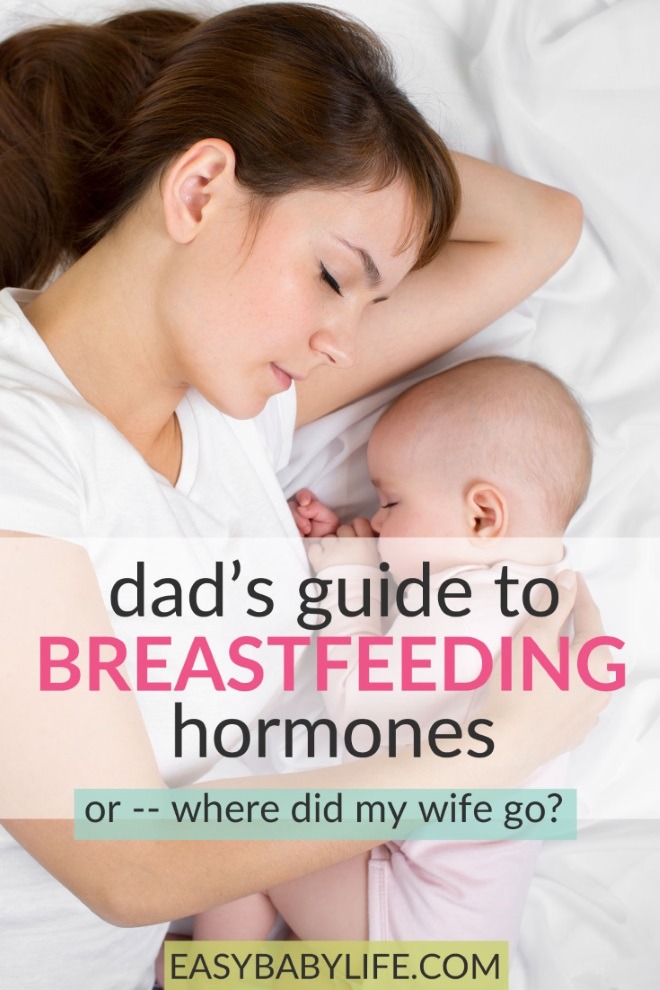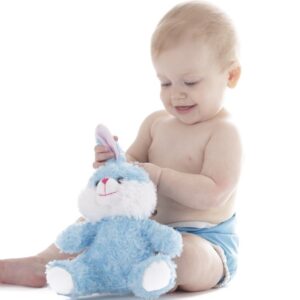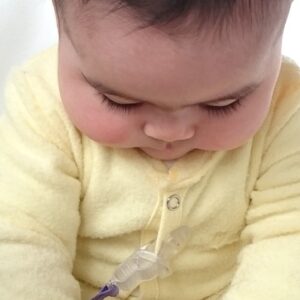Breastfeeding hormones may have quite strong effects on breastfeeding moms. Why? And what can Dad do to help?

However great the beginning of parenthood may be, it is also marked by a lot of adjustments. One of the adjustments – if mom breastfeeds – is the switch from pregnancy hormones to breastfeeding hormones ruling her body. Some of the not-so-great effects of bathing in breastfeeding hormones are mood swings, anxiety, unhappiness, and regret. Add to this the inevitable sleep deprivation, and as a new dad, you may no longer even recognize your partner.
You may also begin to start feeling a little panicky yourself.
Well, knowing what’s going on to understand better and maybe even laugh together at the misery sure helps. And this too shall pass to quote the wise old Persian poets.
The Breastfeeding Hormones – The What, Why and What To Do
In this article:
The Hormones Explained
Breastfeeding hormones are one of the causes of the sometimes quite a dramatic transformation in your partner after giving birth. Despite the fact these changes may cause you some stress, there are explanations for these mood swings and emotions. Let’s look at the key breastfeeding hormones, their role in breastfeeding, and their overall effects on moms.
Prolactin
Prolactin is also often called the “mothering hormone”. It can also be called the “parenting hormone,” as dads produce Prolactin as well. Although Prolactin is released in all healthy people during sleep, its major function is to be the hormone responsible for stimulating breast milk production. This hormone increases during pregnancy and helps add to the growth of breast tissue. Prolactin levels continue to rise during breastfeeding when the nipple is stimulated.
Besides promoting milk production and breastfeeding, Prolactin also tends to relax mothers. Interestingly enough, Prolactin causes a reduction in mothers’ and fathers’ testosterone levels, which in turn reduces their libido.
You can learn more about mom’s libido while breastfeeding here.
For some women, the increased level of prolactin goes hand in hand with decreased levels of Dopamine to the extent that their mood is greatly affected. Research around this is quite thin, but Dysphoric Milk Ejection Reflex, as it is called, does exist and can affect breastfeeding moms severely. A case study from 2010 (reference below) concludes:
“Dysphoric Milk Ejection Reflex (D-MER) is an abrupt emotional “drop” that occurs in some women just before milk release and continues for not more than a few minutes. The brief negative feelings range in severity from wistfulness to self-loathing and appear to have a physiological cause. The authors suggest that an abrupt drop in dopamine may occur when milk release is triggered, resulting in a real or relative brief dopamine deficit for affected women.”
Oxytocin
Oxytocin is the other important breastfeeding hormone. If Prolactin is the “mothering hormone,” then Oxytocin is the “bonding hormone”. Oxytocin has important effects on both the breasts and the uterus. In terms of the breasts, oxytocin is necessary for the let-down or milk ejection reflex to occur. The baby suckling at the breast stimulates this process.
This hormone is also important for contracting the muscle of the uterus during and after birth. This process in the muscles helps to deliver the baby, the placenta, and, later, to shrink the uterus back to its normal size.
It is believed that also oxytocin may have a role in affecting Mom’s libido negatively. The hormone is normally released during and after orgasm, and when it is released while breastfeeding, it may reduce libido, just like having an orgasm temporarily reduce libido.
Estrogen
The third breastfeeding hormone that works against a mom’s libido is estrogen. Estrogen levels are low while breastfeeding, which may lead to vaginal dryness and intercourse being uncomfortable.
So, to sum up, there are quite strong hormonal reasons for changes in a breastfeeding mom’s mood and libido. These changes will gradually diminish as she goes from fully breastfeeding to starting with other types of feeding to eventually weaning the baby.
Dad’s Role
Despite all the adjustments, the upheaval of new emotions, the chronic sleep deprivation, and countless other new changes in your life, this is really the time for a new dad to shine. If you think of new parenthood as a new beginning, think of breastfeeding your child as a foundation for this beginning.
As a result, there are many things dads can do to support and help the building of this new foundation. We asked a new dad what he felt were the best ways to support his partner:
- Help your partner get as much sleep as possible. Nursing is very tiring for new moms. Encourage your partner to rest and nap as much as possible. For useful tips on maximizing a new mom’s sleep, click here. And find tips to help your baby sleep better here.
- Take over many of your partner’s usual roles and household responsibilities. Any extra help you can do during this time will go a long way. At home, my wife always did the dishes and loaded the dishwasher. After the birth of our daughter, I took over that role in the household. It helped show my wife I cared about her and that she wasn’t taken for granted.
- Give your wife steady praise and encouragement. Point out that she is doing a great job and is already a great mother.
- Become involved and bond with your baby. Just because your wife is breastfeeding doesn’t mean that you are left out. There are many things you can do. See this article for tips about how new dads can bond with their babies.
Despite all the changes and stresses occurring from breastfeeding hormones, estrogen, testosterone, and other hormones, it won’t last forever. If things seem to get really distressful, however, it’s important to remember there is help out there. Don’t be afraid to ask friends, your medical provider, or the local La Leche League program for assistance. You can also share your situation here by leaving a comment below.
Research References
Heise AM, Wiessinger D. Dysphoric milk ejection reflex: A case report. Int Breastfeed J. 2011 Jun 6;6(1):6. doi: 10.1186/1746-4358-6-6. PMID: 21645333; PMCID: PMC3126760.
Infant and Young Child Feeding: Model Chapter for Textbooks for Medical Students and Allied Health Professionals. Geneva: World Health Organization; 2009. SESSION 2, The physiological basis of breastfeeding.

Paula Dennholt founded Easy Baby Life in 2006 and has been a passionate parenting and pregnancy writer since then. Her parenting approach and writing are based on studies in cognitive-behavioral models and therapy for children and her experience as a mother and stepmother. Life as a parent has convinced her of how crucial it is to put relationships before rules. She strongly believes in positive parenting and a science-based approach.
Paula cooperates with a team of pediatricians who assist in reviewing and writing articles.






